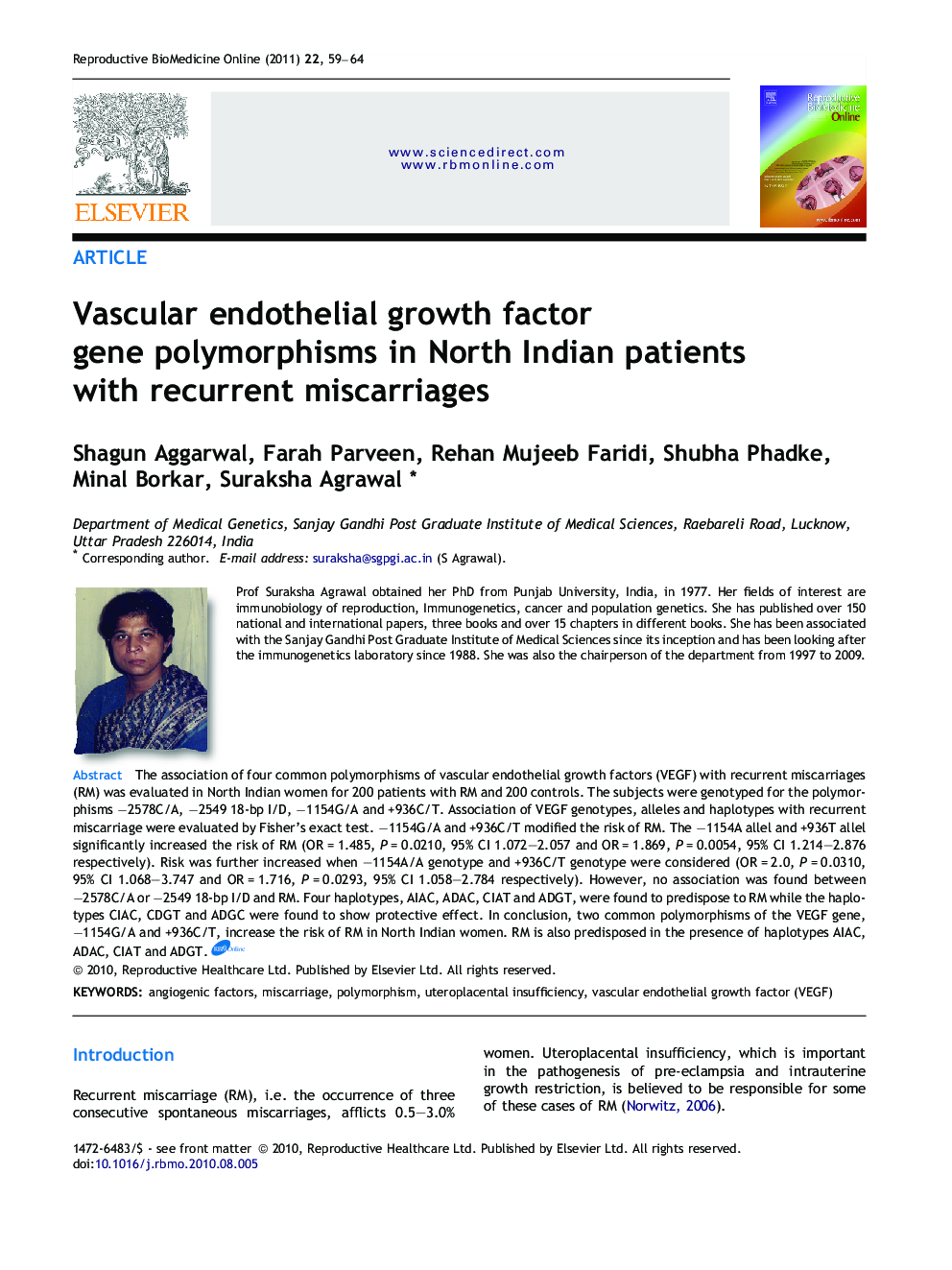| Article ID | Journal | Published Year | Pages | File Type |
|---|---|---|---|---|
| 3971810 | Reproductive BioMedicine Online | 2011 | 6 Pages |
The association of four common polymorphisms of vascular endothelial growth factors (VEGF) with recurrent miscarriages (RM) was evaluated in North Indian women for 200 patients with RM and 200 controls. The subjects were genotyped for the polymorphisms −2578C/A, −2549 18-bp I/D, −1154G/A and +936C/T. Association of VEGF genotypes, alleles and haplotypes with recurrent miscarriage were evaluated by Fisher’s exact test. −1154G/A and +936C/T modified the risk of RM. The −1154A allel and +936T allel significantly increased the risk of RM (OR = 1.485, P = 0.0210, 95% CI 1.072–2.057 and OR = 1.869, P = 0.0054, 95% CI 1.214–2.876 respectively). Risk was further increased when –1154A/A genotype and +936C/T genotype were considered (OR = 2.0, P = 0.0310, 95% CI 1.068–3.747 and OR = 1.716, P = 0.0293, 95% CI 1.058–2.784 respectively). However, no association was found between −2578C/A or −2549 18-bp I/D and RM. Four haplotypes, AIAC, ADAC, CIAT and ADGT, were found to predispose to RM while the haplotypes CIAC, CDGT and ADGC were found to show protective effect. In conclusion, two common polymorphisms of the VEGF gene, −1154G/A and +936C/T, increase the risk of RM in North Indian women. RM is also predisposed in the presence of haplotypes AIAC, ADAC, CIAT and ADGT.In many of the women with three or more miscarriages, no definite cause for their illness can be found. Recently researchers have found that a growth factor which promotes the growth of blood vessels known as vascular endothelial growth factor (VEGF) plays an important role in the formation of blood supply of the fetus through the placenta. Reduced concentrations of this factor might contribute to the improper formation of the placenta, which may cause recurrent miscarriage. The gene for VEGF is polymorphic consisting of variations in its nucleotide sequence at various locations. Researchers have shown that these variations in the gene lead to different concentrations of VEGF in different people. Hence, there may be some women with a certain polymorphism(s) who have lower VEGF production and so are at risk of recurrent miscarriage. In this study conducted in North India, we tested these polymorphisms in women with and without recurrent miscarriage and tried to find if any particular polymorphism increased the probability of a woman having a recurrent miscarriage. We found that at least two polymorphisms of the VEGF gene, −1154 G/A and +936C/T, did increase the risk of recurrent miscarriage among carriers of the uncommon allele.
